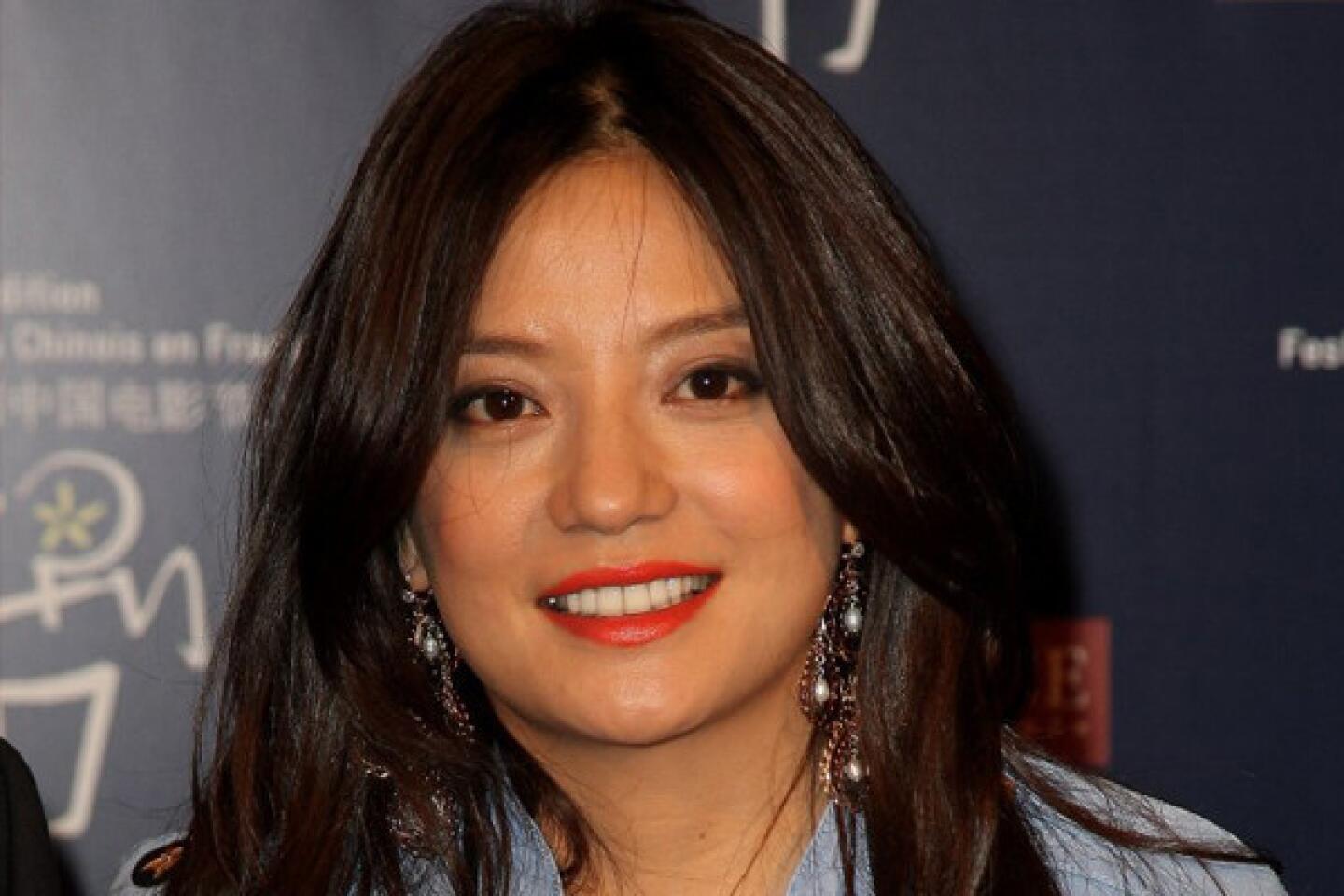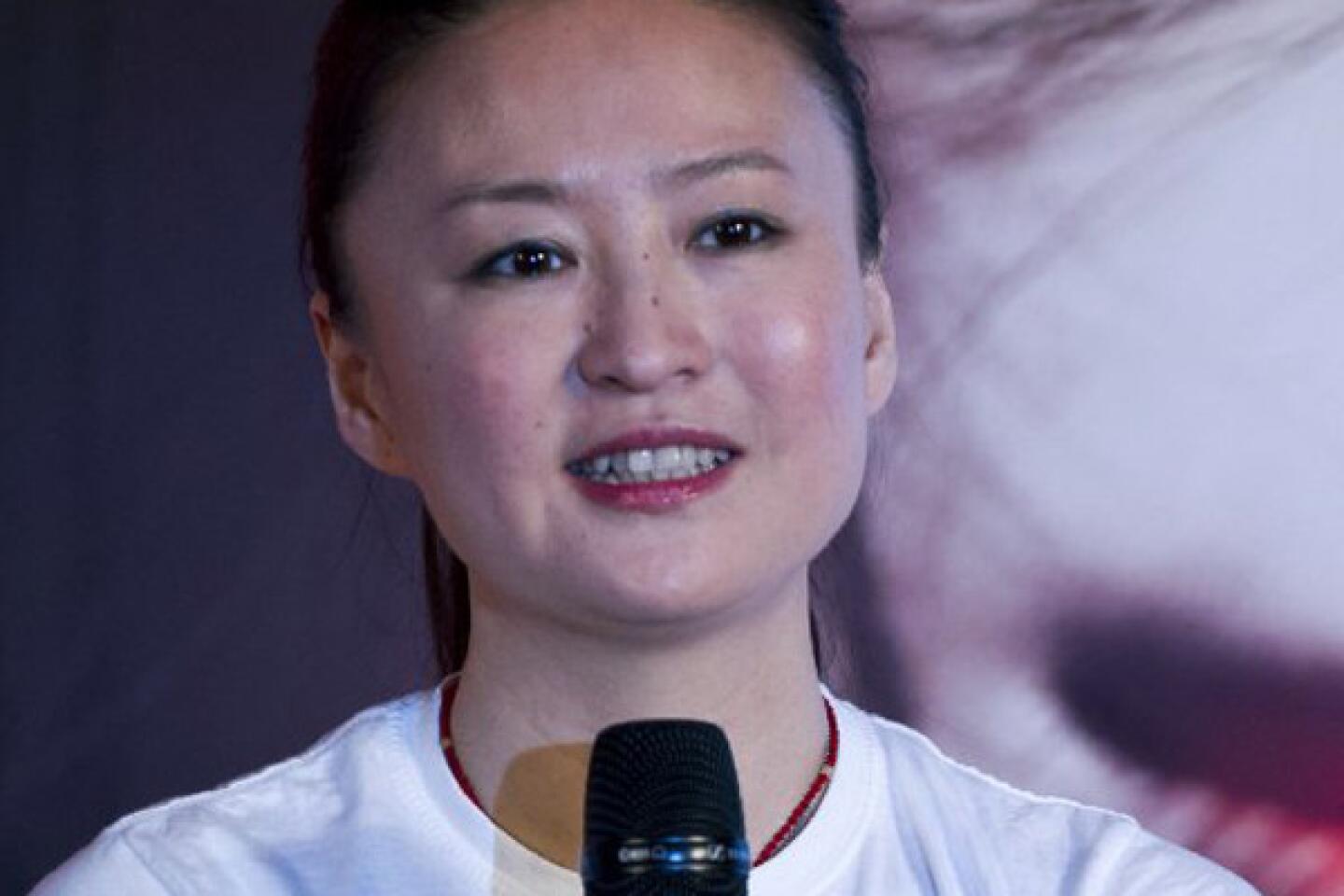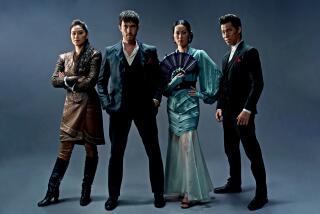Martial arts master Ip Man reigns large in film
HONG KONG — There is a scene near the beginning of Wong Kar Wai’s “The Grandmaster” in which the main character, the martial arts expert Ip Man, expounds on the ethos of his practice. “Kung fu: two words. One horizontal, one vertical — if you’re wrong, you’ll be left lying down. If you’re right, you’re left standing — and only the ones who stand have the right to talk.”
Lately it seems filmmakers can’t talk enough about Ip Man. Born in southern China in 1893, he was notable for having taught the iconic Bruce Lee and popularizing the Wing Chun school of kung fu. Though he died in poverty and exile in Hong Kong in 1972, Ip has become an almost mythical figure featuring in multiple films in recent years.
Besides “The Grandmaster,” now in theaters, he is the subject of Herman Yau’s “Ip Man: The Final Fight” (which opens Sept. 20 in L.A. and is available on VOD) and at least three other major films since 2008 — Yau’s “The Legend Is Born: Ip Man,” plus Wilson Yip’s “Ip Man” and “Ip Man 2.” An “Ip Man 3” is in the works as well.
Ip’s character is engaging filmmakers and audiences as much for the traditional Chinese values he is seen to represent as for his own biography, which spans many tumultuous years of Chinese history and offers multiple entry points for dramatic storytelling.
“Ip Man is a blank slate,” explained Grady Hendrix, a founder of the New York Asian Film Festival. “The movies can make him into whatever they choose to make him. It is just helpful to say here is this avatar of Chinese virtue who also kicks a lot of ass.”
Added Roger Garcia, director of the Hong Kong International Film Festival: “He is a partly Confucian-driven person who stands up for his principles and fights the bad guys. Ip Man is a kind of hero. And there are not too many superheroes in China.”
SNEAKS: Movie trailers, full coverage
Another factor in the flowering of interest in Ip’s story? The difficulty of making movies about his famous pupil, Lee. “The holy grail of Hong Kong for a long time is to make a biopic of Bruce Lee,” Hendrix said. “But the Lee family controls his image very closely so his Wing Chun teacher is the next best thing.”
The flurry of Ip Man films have proven popular in Hong Kong and beyond. Wong’s “The Grandmaster,” for instance, earned more than $50 million worldwide and is the Hong Kong director’s highest-grossing film ever in mainland China. (Ip left the mainland just as the Communist era was starting, so his story presents few problems for mainland censors and yet for audiences feels more contemporary than many imperial dynasty period dramas. Some Ip Man films, including “Grandmaster,” have emphasized his resistance to Japanese occupation during World War II.)
For filmmakers, Ip is a malleable lens through which they can channel their visions. In “The Grandmaster,” Tony Leung plays Ip with his trademark brooding introspection; this is a man who beats his competitors through self-restraint and wits rather than mere brawn. But Wong, a romantic auteur, uses Ip — and a fictional side story of his unconsummated love for the martial artist Gong Er (played by Zhang Ziyi) — to examine regret and yearning. Both characters battle their opponents in elements and landscapes that mirror their own tortured souls, from torrential sheets of rain to the vast snowy drifts of northern China.
PHOTOS: Billion-dollar movie club
By contrast, Yau — a veteran commercial director — uses Ip as a framing device to explore Hong Kong’s colonial history. Ip arrived in the then-British colony in 1949, and “The Final Fight” homes in on how locals chafed against London’s rule.
While the movies have opposing styles — “The Grandmaster” is languid, lush and consumed by longing while “The Final Fight” is fast-paced and often funny — they both touch on the struggles of mainland Chinese who settled in Hong Kong after the Japanese invasion and the Communist takeover.
“When I was shooting the movie, I tried to imagine how my father and my mother were living in that era, how they struggled, how they brought up me and my brothers,” explained Yau in his hometown, which the British returned to Chinese rule in 1997. “Hong Kong is quite nostalgic now because things are disappearing too fast.”
PHOTOS: Celebrities by The Times
To recapture the Hong Kong of the past, Yau not only built historical sets but also tried to create the aesthetic of an old film. In his movie Ip, to the disapproval of his students, falls for a glamorous singer. They cautiously set up a semblance of a life together, but there are no sex scenes; their affair is platonic and chaste. Yau wanted to mimic the movies made in Hong Kong during the ‘50s when “there is no way to find a love scene. What I have done is to put the 1950s aura into ‘The Final Fight.’”
To prepare to play Ip in “The Grandmaster,” Leung spent a year and a half training in Wing Chun (and broke his arm twice while shooting). But beyond his physical prowess, it was Ip’s intelligence and moral compass that Leung most wanted to portray. The actor recalled that when he came across a photograph of the real Ip, he saw “a man who doesn’t look like a kung fu man. He looks like a scholar, a very refined, graceful person. In his eyes, I can see Ip Man still has dignity.”
This notion is corroborated by Sifu Duncan Leung, one of Ip’s former students, who trained with the master in 1950s Hong Kong and acted as Leung’s martial arts teacher. “In the winter, [Ip Man] wore a very thin beat-up jacket, thin shorts and no shoes,” recalled Sifu. “He was a real gentleman. He never complained, he never asked for help, not once.”
PHOTOS: Hollywood backlot moments
Yet as filmmakers have built up Ip as a folk figure, most have shied away from the more thorny parts of his life. According to Sifu, Ip dabbled in opium and his second wife was an addict. “The Final Fight” alludes to this (Ip’s love interest offers him opium), but the issue is never fully explored.
Instead, it is Wing Chun — a martial art based on short and fast punches — that takes center stage in both “The Grandmaster” and “The Final Fight.” Darren Leung, Duncan’s son and Tony Leung’s day-to-day trainer, describes Wing Chun as “about economy of motion. The maximum result for the minimum effort.”
In “The Grandmaster,” it is the codes that surround this art, and the gilt-laden walls of the lavish Golden Pavilion brothel where its practitioners gather, that consume its characters.
“The Grandmaster” was a decade in the making and its production was fraught with problems; it is unlikely Wong Kar Wai will be making any more Ip Man movies soon. But for Herman Yau, the lure of Ip’s story — and no doubt the profits it provides — continues to tempt.
“I still want to make one or two more Ip Man movies,” Yau said. “There are still many more stories and dramas during Ip Man’s life which are very interesting to me as a filmmaker. Even though the title is the ‘Final Fight,’ we still have some final years.”
More to Read
Only good movies
Get the Indie Focus newsletter, Mark Olsen's weekly guide to the world of cinema.
You may occasionally receive promotional content from the Los Angeles Times.












